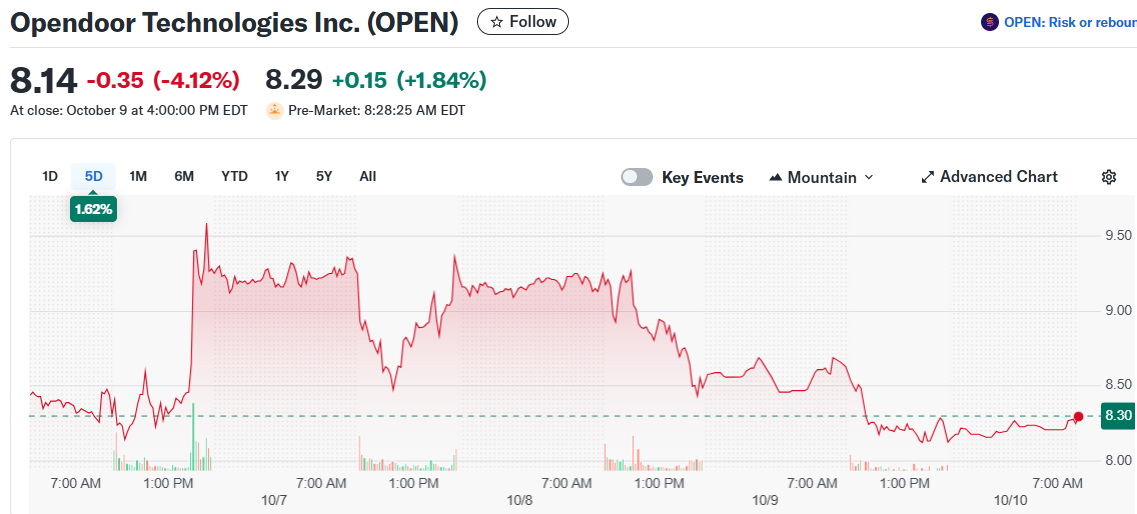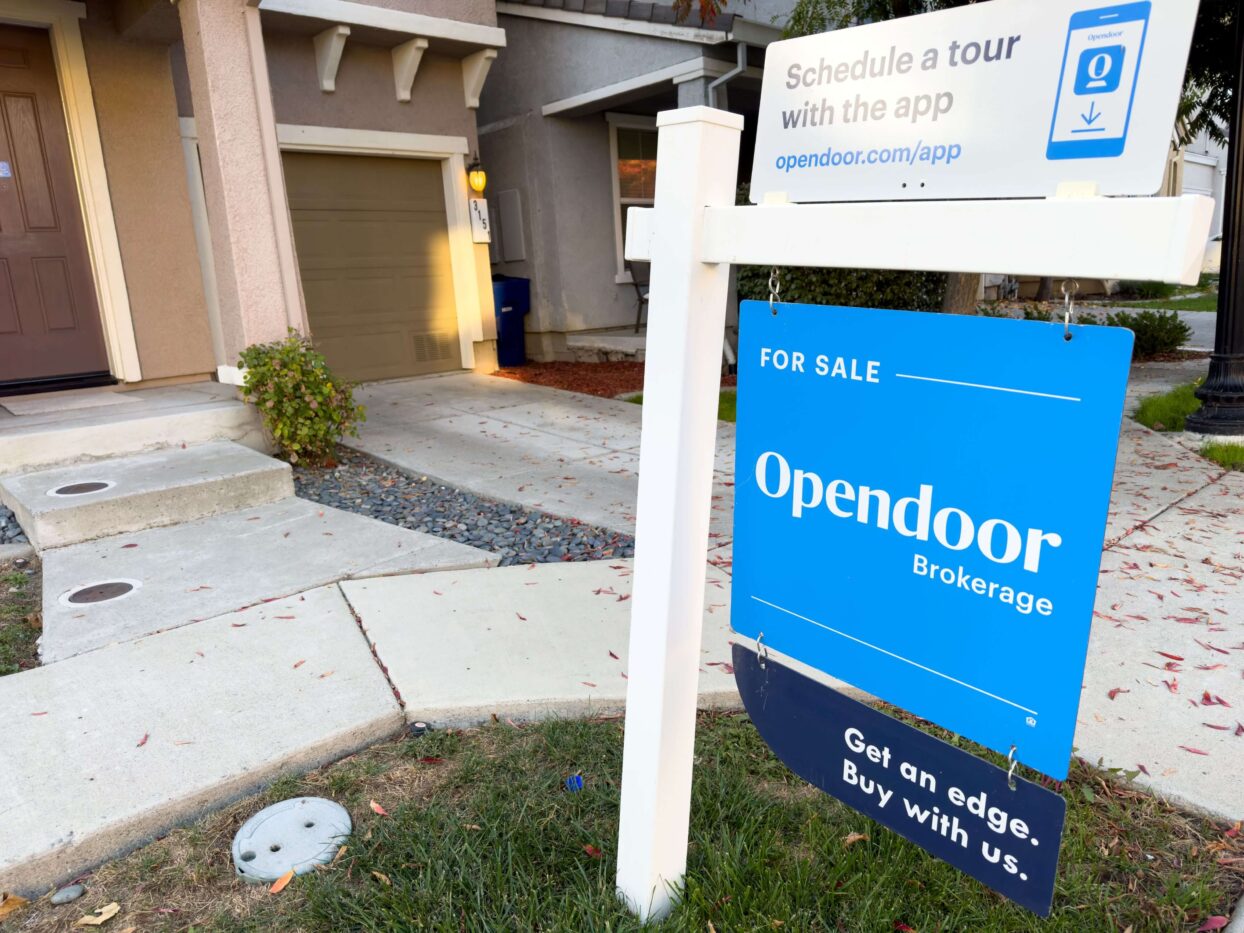TLDR
- Opendoor Technologies (NASDAQ: OPEN) stock dropped 3.69% on Thursday following broader market concerns affecting investor sentiment
- The company recently announced a major leadership overhaul, naming Shopify COO Kaz Nejatian as CEO and bringing back co-founders Keith Rabois and Eric Wu to the board
- Opendoor secured a $40 million investment from Khosla Ventures and Wu as part of the management reset focused on AI-powered home buying tools
- Q2 2025 showed improvement with $1.6 billion in revenue and the first adjusted EBITDA profitability since 2022 at $23 million, though GAAP net loss was $29 million
- Q3 guidance calls for revenue of $800-875 million but projects a return to adjusted EBITDA losses between negative $21-28 million
Opendoor Technologies stock fell 3.69% on Thursday as investors digested recent volatility in the digital real estate platform. The drop comes after shares experienced one of the year’s biggest rallies following a sweeping management overhaul.

The company named Kaz Nejatian, Shopify’s chief operating officer, as its new CEO. Co-founders Keith Rabois and Eric Wu returned to the board, with Rabois taking the chairman role.
The leadership changes came with a $40 million private investment from Khosla Ventures and Wu. Management framed the reset around artificial intelligence-powered tools for home buying and selling.
Day 52:
Early morning out here in front of Drake’s, talking about patience and the long game. 💎
Hundred-baggers don’t move in straight lines — even Carvana went sideways for six months starting July ‘23 before exploding again. There’s nothing wrong with OPEN — its turnaround… pic.twitter.com/ZhlrExbqmq
— Eric Jackson (@ericjackson) October 9, 2025
Nejatian said the company plans to make buying or selling a home “radically simpler, faster, and more certain” using AI. The announcement sparked a powerful rally that squeezed short sellers who had bet against the stock.
The stock’s recent 80% gain evaporated quickly, leaving investors questioning the sustainability of such moves. Thursday’s decline reflects ongoing market uncertainty about the company’s path forward.
Recent financial results showed mixed signals. Second quarter 2025 revenue reached approximately $1.6 billion, up modestly year over year and meaningfully from the first quarter.
The company posted $128 million in gross profit. Opendoor achieved its first adjusted EBITDA profitability since 2022 at $23 million, though the GAAP net loss remained at $29 million.
Guidance Points to Near-Term Challenges
Third quarter guidance tells a different story. The company projects revenue between $800 million and $875 million.
Contribution profit is expected to stay positive at $22 million to $29 million. However, adjusted EBITDA is forecast to return to negative territory between negative $28 million and negative $21 million.
The guidance shows the path to consistent profitability remains uncertain. Inventory ended the second quarter lower year over year, while home purchases declined sharply.
At current prices, Opendoor’s market cap sits near $7 billion. Against trailing twelve-month revenue of approximately $5.2 billion, the price-to-sales ratio stands at roughly 1.5.
Financial Metrics Raise Questions
The company carries a total debt-to-equity ratio of 3.46, showing substantial borrowing compared to equity. Operating cash flow reached $823 million, but operational losses totaled $29 million.
The price-to-book ratio climbed to 10.84. The profit margin stands at negative 5.88% with an EBIT margin of negative 4.6%.
Cash position grew by $492 million during the recent quarter. The liquidity ratio of 4.4 indicates the company can cover short-term liabilities comfortably.
Transaction volumes, pricing spreads, and holding times remain tied to mortgage rates and local supply conditions. These factors create macro sensitivity for the business model.
Short interest has been elevated, and retail enthusiasm has amplified daily price movements. A single operational misstep could compress the valuation multiple.
The company’s agent-led distribution push aims to serve more sellers with lighter capital needs. Management highlighted this as a growth driver going forward.
Inventory management and sell-through rates will be critical metrics to watch. Days-held figures directly impact profitability and cash conversion cycles.
The housing market remains choppy, creating headwinds for transaction-based businesses. Opendoor’s model requires careful navigation of these conditions.






